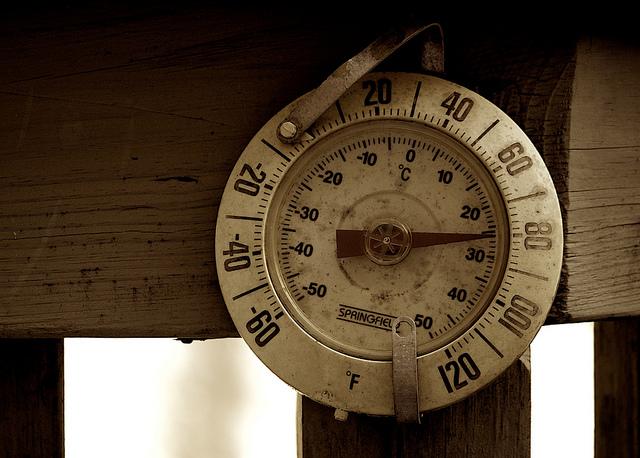
The Beat
In depth: Anti-Corruption Summit
On 12 May, British Prime Minister David Cameron held an Anti-Corruption Summit in London. The Summit focused on some of the biggest global corruption problems, including secrecy in the movement of money and public contracting. Participating countries signed up to three general principles: that corruption should be exposed, the corrupt should be pursued and punished and corruption should be driven out. Australia announced that it will explore options (PDF) for publishing registries of who owns and controls companies to improve transparency and accountability.
The Economist has a good piece on what the summit did and didn’t achieve, while The Age examined what Australia can do to reduce global corruption—starting with getting our own house in order.
While the world’s attention is on the issue of corruption, the International Monetary Fund has published a paper (PDF) that looks at how corruption hampers economic growth and argues that by reducing corruption, countries can improve economic stability and boost their growth and development.
Should we be compensating whistle-blowers?
A new article in the Australian Financial Review has taken a look at US laws that permit paying rewards to whistle-blowers, to protect their livelihood, which could be used as models for Australia moving forward. It’s recently been argued that Australia needs a stronger whistle-blower regime.
CT Scan
Australian terrorism-related offences
On 17 May, the Victorian Joint Counter Terrorism Team executed warrants at properties in north and north-west Melbourne as part of Operation Middleham. The properties were linked to five Victorian men charged with attempting to leave Australia by boat with plans to reach Syria and fight for Daesh.
Meanwhile, Sydney teenager Tamim Khaja was arrested on 18 May over planning a terrorist shooting at Parramatta Court Complex, Garden Island Navy Base and the Victoria Barracks. NSW Deputy Police Commissioner Neil Gaughan reported Khaja was looking for ‘sites in Sydney to undertake a terrorist attack and was making arrangements to acquire a firearm’. Khaja was known to police for preaching radical Islam at his high school and attempting to leave Australia to fight overseas prior to his arrest.
Libyan government receives international backing to fight Daesh
The US is among 25 nations set to back Libya’s new unity government in its fight against Daesh.. US Secretary of State John Kerry said governments would seek an exemption to the UN arms ban enabling them to supply weapons to the national unity government. The measure will also stem the smuggling of migrants to Europe, in which Libya acts a gateway. Libya has experienced political unrest since 2011 with the fall of long time ruler Muammar Gaddafi.
Checkpoint
Death at the border
Thousands of illegal immigrants cross the US southern borders each year, with many perishing in the remote desert. Full Measure, an investigative news program, has released ‘The Missing’—a report that looks into the forensic science used to identify the many undocumented migrants who perish after their border crossing. Things continue to look dire at the US’ southern border, with the number of apprehensions of unaccompanied children and families increasing significantly from 2015. Border security is still pervading the US election campaign trail, as the National Border Patrol Council— a US labour union that represents 16,500 border enforcement agents—recently announced its support of presidential candidate Donald Trump. Check out the Council’s podcast, The Green Line, which includes an interview with the presidential hopeful on all things border security, immigration and law enforcement.
Additionally, US asylum and immigration enforcement systems have came under fire last month with human rights organisation Human Rights First. The group released a report in April that suggested that significant underfunding and changes in enforcement strategies ‘hurt asylum seekers and threaten to undermine the integrity of the system’.
First Responder
Report details annual total losses from disasters
A new report (PDF) released on Monday from the World Bank’s Global Facility for Disaster Reduction and Recovery (GFDRR) has warned 1.3 billion people and US$158 trillion in assets could be impacted by sea-level rise and sinking of coastal cities by 2050. The report also detailed that annual total losses from all global disasters—averaged over a 10-year period—has increased tenfold between 1976–1985 (US$14 billion) and 2005–2014 (over US$140 billion). In addition, the average number of people affected each year by disasters rose from 60 million to 170 million in the same period. In response, GFDRR has launched a new risk management tool, ThinkHazard!, which collates all potential disaster risks within a particular region in order to determine the potential likelihood of natural hazards and necessary actions to make the location resilient.
World’s poorest to be the first affected by extreme heat
Some of the world’s poorest countries will be the first affected by daily heat extremes due to climate change, a new study (PDF) has detailed. The findings—published in Environmental Research Letters—found the poorest fifth of the world’s population, particularly those in the Horn of Africa and West Africa, will be the first to experience frequent heat extremes, despite the fact they emit the least amount of CO2. The study used climate models to estimate CO2 emissions and changes to extreme local daily temperatures over the last 100 years.